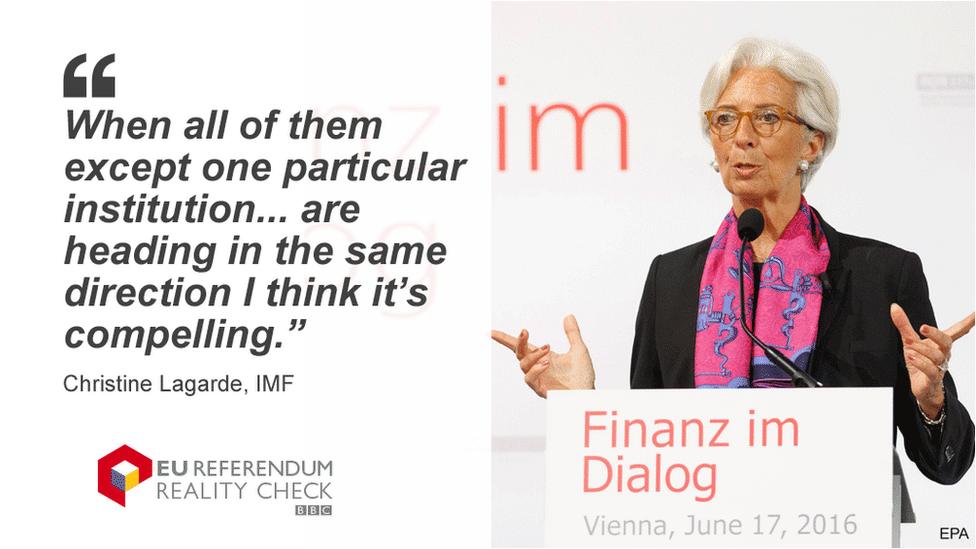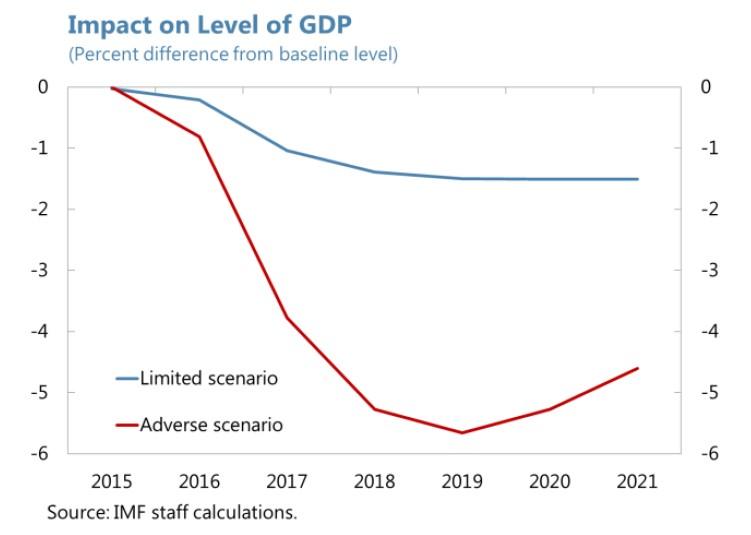Reality Check: Would Brexit knock 5.6% off UK economy?
- Published

The claim: Leaving the European Union would mean the output of the UK economy would be 1.5% or 5.6% lower in 2019 than it would have been if the UK had stayed in.
Reality Check verdict: There is disagreement about how bad leaving the EU would be for the UK economy, but almost all predictions say it would be negative.

The IMF has had its third bite of the cherry in the EU Referendum campaign, finally providing the figures for the economic forecasts it has been promising.
IMF managing director Christine Lagarde has previously said that the possible outcomes from Brexit would range from pretty bad to very, very bad.
Now, the organisation, which promotes economic co-operation between countries, has released its predictions. In a situation in which the UK retains preferential access to the single market from outside the EU, as Norway and Switzerland do, it predicts that the country's economic output would be 1.5% lower by 2019 than it would have been if there had not been a Brexit.
In a situation in which the UK left the EU and decided not to try to negotiate preferential access to the single market, the IMF predicts output would be 5.6% lower by 2019 than it would have been without Brexit, with the economy actually contracting in 2017.
The economy contracting in 2017 would mean the country will produce less - it would almost certainly mean a recession.
It is particularly interesting that there is so much difference between the two scenarios in 2017, which would be while negotiations were still under way and the UK remained part of the EU.
That is because much of the initial dip predicted is because of companies and households delaying or cancelling spending and investment, which the IMF reckons would happen to a much greater extent if there were no plans to negotiate preferential access to the single market.
Ms Lagarde was asked by BBC News whether there is a problem with predictions from the IMF and the wider economics profession lacking credibility.
"We might distrust them, we might challenge them, there are instances when some of them are right and others are wrong," she said.
"But when all of them except one particular institution... are heading in the same direction, I think it's compelling."
The one institution that disagreed was Economists for Brexit, which said leaving would be good for the economy.
We have warned in the past about the dangers of economic modelling, but Ms Lagarde is right that almost all of the models predict that leaving the EU would be bad for the economy, even if there is disagreement about exactly how bad.



- Published22 February 2016
